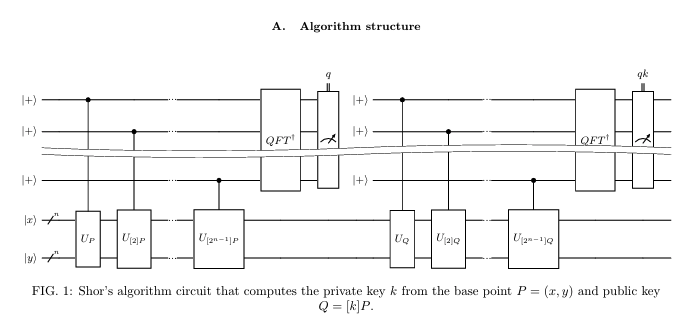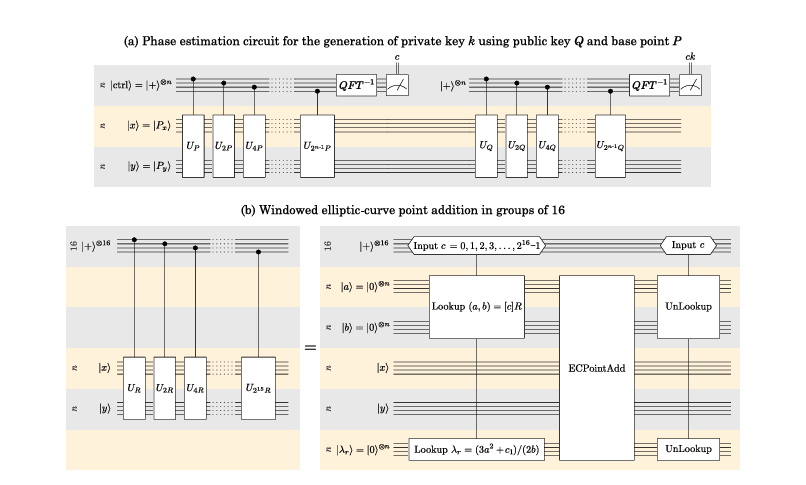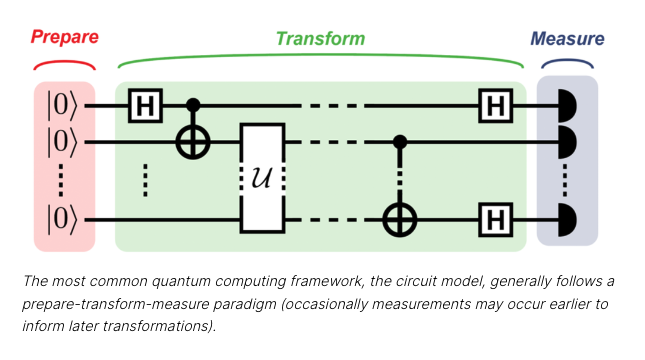
Blocklets
PsiQuantum presents a new, practical approach to fault tolerant quantum computing. The new approach, one particularly suitable for the high connectivity of photonic quantum computers, manages to achieve large checks but with fixed (small) hardware, leading to significantly higher performance.

End-to-end framework for simulating the time evolution of a chemical reaction on a fault-tolerant quantum computer
Researchers from PsiQuantum and Stanford have developed a comprehensive state-of-the-art end-to-end framework for the simulation of real-time dynamics of chemical systems on a fault-tolerant quantum computer; this is of interest in modeling the dynamics of chemical reactions, such as those that involve catalysts.

Reducing the execution time for breaking elliptic-curve cryptography using Active Volume and photonic hardware
Researchers from PsiQuantum and the Hartree Centre have published the first physical resource estimate to execute a quantum algorithm for breaking Elliptic Curve Cryptography (ECC) over binary fields.


Thinking inside the blocks: Fighting faults with a logical instruction set
How large does a useful quantum computer need to be?
This is an important but surprisingly hard question to answer.

A More Efficient Method for Breaking Elliptic Curve Cryptography (ECC) Using a Fault Tolerant Quantum Computer
Cracking cryptographic protocols is a well-known impact area for fault-tolerant quantum computing. Clearly it is important to estimate just when quantum computers will impact cryptography.

Sculpting noise with dynamical bias
Photonic qubits have the great advantage that they don’t easily interact with their environment and hence are intrinsically less noisy than many other qubit types…

Modular decoding: Scaling up by breaking down
There’s an unsung impasse currently facing commercially useful fault-tolerant quantum computers. Useful quantum computers rely on quantum error-correcting codes that redundantly encode otherwise delicate logical information into a much larger system of physical qubits….

Fusion Based Quantum Computing (FBQC)
We’re excited that our work on Fusion Based Quantum Computing (FBQC) has recently been published in nature communications…
